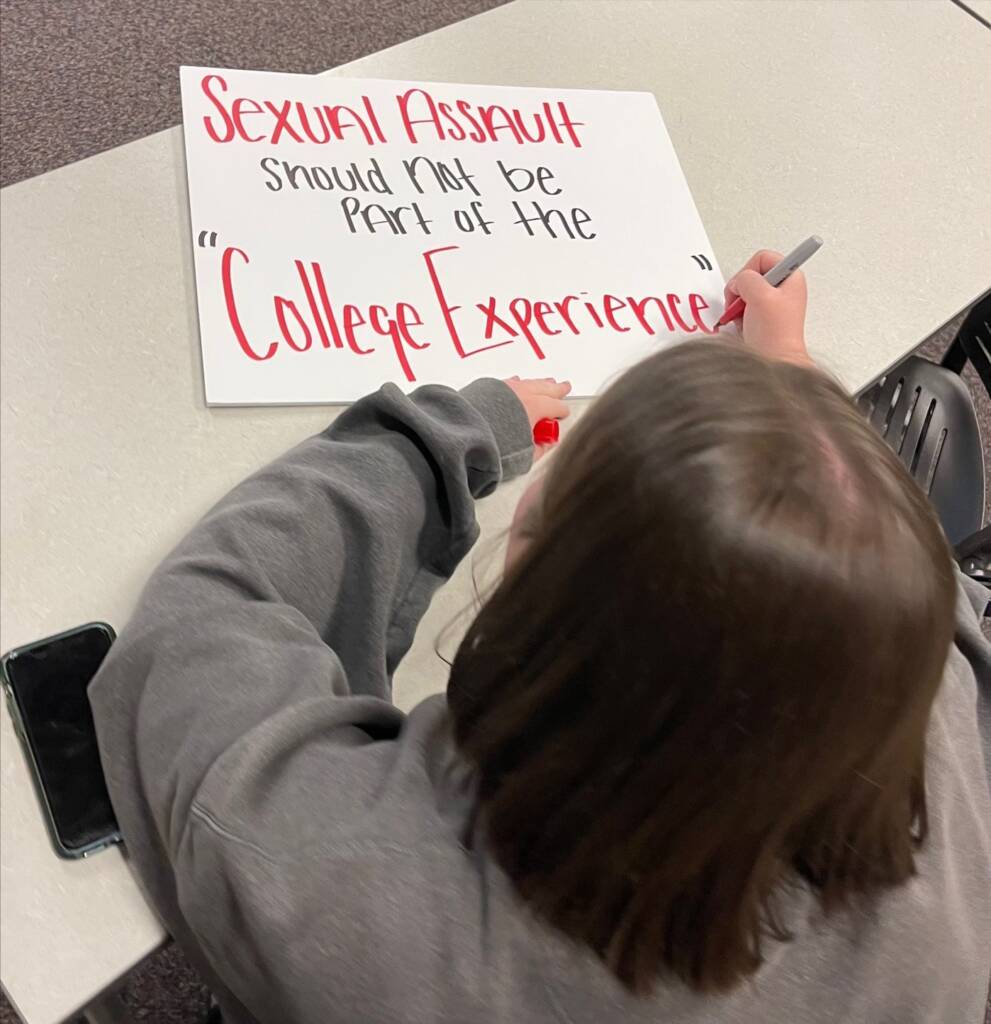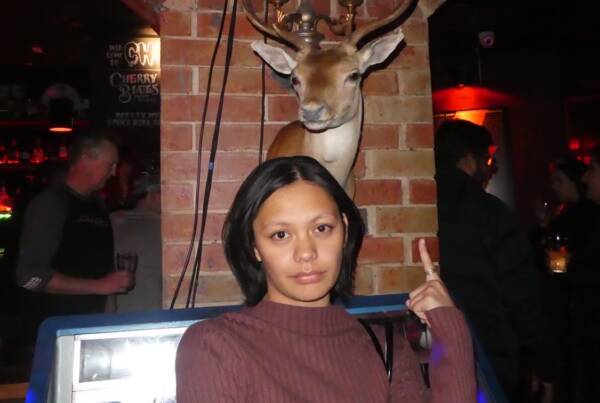Writing by Bella Fong
 I recall the iridescent chalk blue footprints and hearts lining the steps to several buildings as I walked through my university one night. On the footpaths, etched in white and turquoise was the text “I will walk with you”. Acknowledging the sudden wash of calm but not fully comprehending why, I walked on, having stumbled upon a larger community I didn’t know I needed.
I recall the iridescent chalk blue footprints and hearts lining the steps to several buildings as I walked through my university one night. On the footpaths, etched in white and turquoise was the text “I will walk with you”. Acknowledging the sudden wash of calm but not fully comprehending why, I walked on, having stumbled upon a larger community I didn’t know I needed.
The sexual violence prevention center’s “I will walk with you” chalk art not only signaled care and concern but a response to an insidious reality: the normalized ubiquity of sexual violence.
Just last year, the World Health Organization published a report indicating that 1 in 3 women globally, equating to an estimated 1.3 billion women, experience some form of physical or sexual violence in their lifetimes. Although research has primarily focused on women, sexual violence can affect anyone, regardless of gender identity, race, sexual orientation, etc. With additional research pointing to individuals of color and queer, non-binary, and transgender (especially transmasculine) individuals experiencing sexual violence at disproportionate rates, “1.3 billion” could be interpreted as a “minimum” or “baseline” for the number of those affected by this violence and its aftermath.
Devastatingly, the touted “university experience” too may be warped by sexual violence on and off campuses around the world. Among university populations, 9.4% of Australian undergraduates and 13% of American undergraduate and graduate students will have experienced some form of sexual violence (including harassment) before graduation. And sexual violence or the act(s) of the perpetrator(s) is not alone in impacting the survivor, for trauma can carry an individual through a much longer journey.
I’ve often thought of my trauma as a living maze with new obstacles seeming to materialize every so often. But over time and with the support and community of fellow survivors, trusted friends, and advocates, the personal paths through and out become increasingly clearer. Community served as a kind of compass, one that I discovered in a movement catalyzed by a few students in Massachusetts in 2016.
Gathered together in a college basement, these students shared their frustrations toward the epidemic of sexual violence that impacted those they love, and resolute in taking matters into their own hands, they began to research how a systemic-approach rather than individual university-by-university approaches could ensure that all students and staff across the state, regardless of size or funding, receive comprehensive prevention and response resources. Sharing their mission with fellow students, alumni, professors, and community providers, these students founded The Every Voice Coalition, an organization that now trains students to write state-level, survivor-centered, bi-partisan legislation combatting sexual violence both on and off campuses in fourteen U.S. states and Washington D.C. Through workshops and 1-on-1 coachings with students and alumni who have successfully written and passed policy, students learn all aspects of the legislative process: from gaining supporters, strategizing community and legislative partnerships, collaboratively writing a bill, developing media presence, and passing and implementing laws that guarantee trauma-informed resources state-wide, regardless of the institution’s location or status as a private, public, community, or vocational school.
With students’ and survivors’ voices at the forefront of every conversation, this student- and young alumni-led movement is ensuring that all young people not only have a seat at the table but have the opportunity to shape decisions impacting them most. To date, The Every Voice Coalition has passed six student-written, survivor-centered laws impacting 1.7 million students. Yet this success is not solely defined by the number of bills passed into law; instead, it is equally, if not more heavily, measured by the transformative experiences students undergo as they become equipped with the tools to advocate for themselves and their peers and uplift and empower their collective voices.
For many of us in the anti-sexual violence movement, our journeys are not of immediate action and triumph. They are mazes of pain and power, of rest and action, of hesitation and spontaneity. They are ones of slow but sure and incremental joy and strength. And at their core, they are grounded in and guided by community, curiosity, and the bravery to ask, “What now?” “With the combined inputs and efforts of advocates, professionals, and those most affected, what could we and should we do now?”. For navigating trauma and combating the systemic issue of violence is possible with community as our compass.






